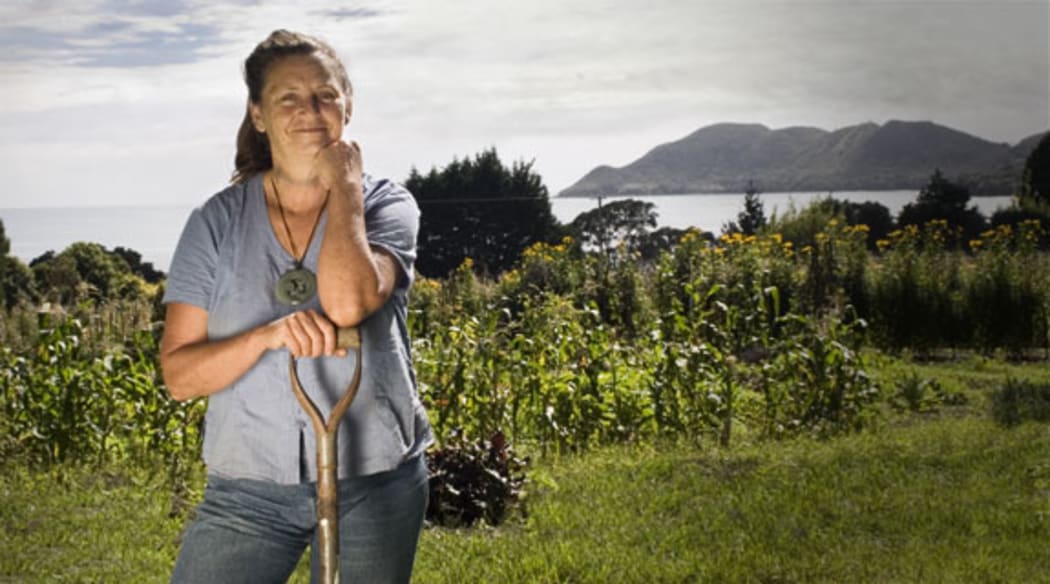The Wairoa District has endured the worst flooding its seen for years, and it’s had a massive impact on their ability to plant and harvest food.
The Kōanga Institute – an organisation of heritage food plant collections which is based in Wairoa – suffered from the bad weather at the end of April.
So they launched an appeal called 'Save our Seeds', which surpassed its $25,000 goal in just two days.

Kay Baxter of the Koanga institute Photo: Suppled
The institute's co-founder, Kay Baxter, tells Jesse Mulligan that apart from severe flooding, the endless rain also cut of their power and road access.
“We’re so dependent on mains power to be able to dry our seeds so as well as the dryers not working, the seeds getting too damp.
“So we had 100 metres or more of beds of dried bean pods all going mouldy and we couldn’t dry them and we had to set up some crazy systems on gates and netting in front of the fire and the teaching room.
“And oh my goodness, it was so stressful with so many people working so hard. But in the end, we actually didn’t lose a lot of seeds, we worked really hard so we didn’t.”
They had already been planning to set up a crowd funder for a new seed storage room after a fire damaged theirs last year.
“We’re quite vulnerable here, it’s quite isolated and rural and the power goes off here frequently,” Baxter says.
“So, we were already planning to build a seed storage facility which wasn’t dependent on mains power because seed storage is really critical as well … and we weren’t planning on starting that until Spring.
“Then when we had this enormous emergency, we just quickly did a crowd funder so we can actually build an off-grid seed drying facility.”
In two days, the appeal was up for the public and in another two days it reached it goal, she says.
“I think for me the most amazing part of all that couple of days is just seeing how much support there is for us out there and a lot of those names were people I’ve known that have supported us for years.”
They hope to get the new off-grid facilities built in time for next season’s seeds.
The institute started about 40 years ago in Kaiwaka, saving Northland heritage fruit trees of early Pakeha settlers, and expanded into a seed collection at the time of the Chernobyl disaster.
“[It] was the point at which I realised that pretty much all the seeds we buy in New Zealand and all our food is grown from seeds that come from the Northern Hemisphere which was under a nuclear cloud,” Baxter says.
“So, we started a heritage seed collection at that point with the idea of creating a bit more food security and local resilience, I mean that whole movement has just come so far in the last 40 years.
“There’s a lot of people interested now in learning to save seeds and grow their own food and the whole field has just exponentially exploded so it’s kind of grown from just saving the genetic material into learning how to grow our food that grows nutrient-dense food and improves, regenerates or improves the soil or the whole ecology.”
If you’re looking to grow a food plant, Baxter recommends also taking a look at the history of your plants and the links it has to early settler ancestry.
Her personal favourite is magenta spreen.
“It’s probably the most nutritious summer green there is, and a lot of people don’t even know about it and it’s so easy to grow and it’s beautiful as well, if you’ve got young kids they love it because it’s kind of got magenta fairy dust on it.”

